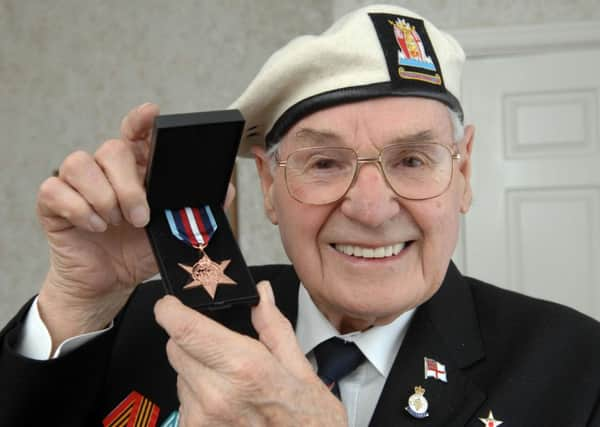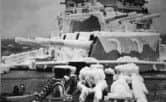Tributes to Arctic convoy veteran


Tributes have been paid to Mr Barker, 89, from Hull, who campaigned for the British government to award a distinct medal for service with the Russian convoys.
It took until December 2012 for recognition to finally come from the UK Government for the service he and thousands of others gave during the Second World War.
Advertisement
Hide AdAdvertisement
Hide AdHowever apparent resistance from the British Government has meant medals from the Russian Government have taken a decade to come through - and many in Yorkshire are still waiting now.


Bob Reeves, chairman of the Hull branch of the Royal Naval Association, had to arrange for the Ushakov medal to be picked up from the Russian Embassy in London and brought to Mr Barker’s bedside where it was presented to him in an emotional ceremony.
He said: “We felt it could have been done months before when George was in better health but at least he got it - we all had a glass of champagne to toast him and he swilled his down with a bit of whisky and water. It was almost as if he was waiting for it - and then it was ‘job done time to go’.”
His widow Betty said: “I was a bit worried in case it would be too much to him, but he was absolutely fine. He had little tears in his eyes. It was important to him.”
Advertisement
Hide AdAdvertisement
Hide AdMore than 3,000 seamen died from 1941 on missions to keep open supply lines to Soviet ports, missions dubbed the “worst journey in the world” by Winston Churchill.
Mr Barker, who lied to join the Navy aged 17, served on the anti-submarine escort carrier HMS Fencer and later in 1944 aboard HMS Furious, when its job was to destroy Tirpitz, the pride of the German Navy.
He told The Yorkshire Post that the worst thing was watching survivors drifting by covered in oil, knowing there was nothing they could for them, and within minutes they would succumb to the bitter cold. Mr Barker, whose funeral was held this week, recalled: “For the whole of the outward and inward trip you never took your clothes off. You just catnapped - I was catnapping in the ammunition locker.”
The campaign for the Arctic Star medal began in 1997 and far exceeded in length the Arctic Campaign itself. In 2006 the Blair government offered a lapel badge, which was dismissed as being “like something you find at the bottom of a cornflakes packet”. The veterans finally won two years ago, but by then many were too ill, or had already “passed over the bar.” The same appears to be happening with the Russian medal. “The unfairness is that 3,000 medals came to the UK early this year and instead of being evenly distributed they were just about all distributed in the south of England,” said Mr Reeves, who said he would be chasing up the two outstanding Hull medals.